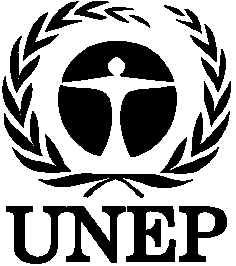
UNITED NATIONS
ENVIRONMENT PROGRAMME

|
UNITED NATIONS ENVIRONMENT PROGRAMME |
 |
For use of the media only;
not an official document.
PRESS RELEASE
POPs treaty talks reveal broad consensus on need for action
Montreal, 3 July 1998 – Officials from 92 countries conclude their first round of talks here today on how to minimize and eventually eliminate emissions and releases of persistent organic pollutants such as DDT and PCBs after reaching early agreement on the way forward.
"We have made extremely rapid progress in Montreal this week," said John Buccini, Chairman of the negotiations and director of commercial chemicals for Environment Canada. "The positive spirit here makes it clear that the international community enthusiastically supports the need for a strong, effective treaty to reduce and eliminate these dangerous chemicals from our environment and from our bodies."
"We now have a good understanding of the starting positions and concerns of each government, and we have established the ground rules that will guide our progress towards the adoption of a POPs treaty in the year 2000," added Jim Willis, director of UNEP Chemicals and head of the secretariat for the negotiations.
Known officially as the first session of the Intergovernmental Negotiating Committee for an International Legally Binding Instrument for Implementing International Action on Certain Persistent Organic Pollutants (POPs), the meeting gave the UNEP secretariat a mandate to prepare a new draft outlining the substantive articles that could be contained in the future convention. Once accepted, this outline will be used for drafting the actual text of the agreement.
The meeting also established an expert group on the development of science-based criteria and a procedure for identifying additional POPs as candidates for future international action. A credible and widely accepted system for adding new chemicals is essential to the long-term success of the treaty, which initially will target just 12 POPs.
Another key agenda item was the need for technical cooperation and financial assistance so that developing countries can participate actively in replacing POPs with alternative chemicals and solutions.
The second round of talks is tentatively scheduled for 8 - 12 February 1999; the negotiations are expected to conclude by the year 2000.
Note to journalists: Official documents and other information are available via the Internet at http://irptc.unep.ch/pops/. For more information or to arrange interviews, please contact Michael Williams in Montreal on Friday at (+1-514) 390-0644 or from Monday at (+41-22) 917 8242, fax (+41-22) 797 3464, e-mail mwilliams@unep.ch.